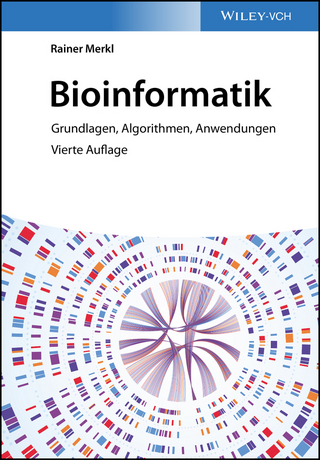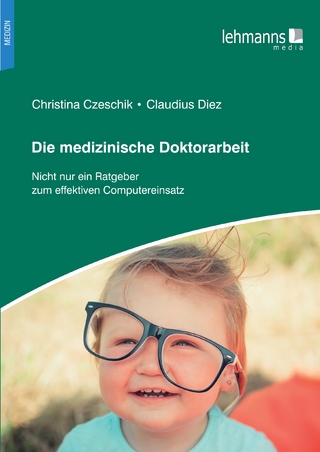
Developmental Human Behavioral Epigenetics
Academic Press Inc (Verlag)
978-0-12-819262-7 (ISBN)
Areas of focus include prenatal stress exposures, preterm behavioral epigenetics, intergenerational exposures, trauma and neglect, socio-economic conditions, maternal caregiving and attachment, study design, and epigenetics and psychotherapy.
Dr. Livio Provenzi received his master’s degree in clinical psychology (2008) and PhD in psychology (2016) at the Università Cattolica in Milan, Italy. Since 2010, he has worked as a researcher and clinical psychologist at the 0-3 Center for the at-Risk Infant of the Scientific Institute IRCCS Eugenio Medea in Bosisio Parini, Italy. He has published scientific papers in the areas of developmental psychology, pediatrics, nursing sciences, neurosciences, and psychobiology. His research interests include developmental psychobiology during the first months of life, including preterm birth, socio-emotional development and stress regulation, mother-infant interaction and regulation, behavioral genetics, and epigenetics. Dr. Rosario Montirosso is a research scientist, and clinical and developmental psychologist. He received his master’s degree in clinical psychology (1987) at the University of Rome “La Sapienza" in Rome, Italy and received his Ph.D. in 1991 from the Institute for Research on Intrapsychic and Relational Processes, IRPIR, Rome, Italy. Since 1989, he has worked as a researcher and clinical psychologist at the Scientific Institute IRCCS “Eugenio Medea in Bosisio Parini, Italy. He has published scientific papers in the areas of developmental psychology, pediatrics, nursing sciences, neurosciences, and psychobiology. He is the Director of 0-3 Centre for the at-Risk Infant, a Unit of the Scientific Institute ‘’E. Medea’’, Bosisio Parini. His scientific work at the 0-3 Center has also lead to the establishment of international collaborations with leading researchers in neuroscience and developmental psychobiology, including Pier Francesco Ferrari, Masha Gartstein, Ruth Grunau, Beatriz Linhares, Lynne Murray, Tim Oberlander and Ed Tronick.Dr. Rosario Montirosso is a research scientist, and clinical and developmental psychologist. He received his master’s degree in clinical psychology (1987) at the University of Rome “La Sapienza" in Rome, Italy and received his Ph.D. in 1991 from the Institute for Research on Intrapsychic and Relational Processes, IRPIR, Rome, Italy. Since 1989, he has worked as a researcher and clinical psychologist at the Scientific Institute IRCCS “Eugenio Medea in Bosisio Parini, Italy. He has published scientific papers in the areas of developmental psychology, pediatrics, nursing sciences, neurosciences, and psychobiology. He is the Director of 0-3 Centre for the at-Risk Infant, a Unit of the Scientific Institute ‘’E. Medea’’, Bosisio Parini. His scientific work at the 0-3 Center has also lead to the establishment of international collaborations with leading researchers in neuroscience and developmental psychobiology, including Pier Francesco Ferrari, Masha Gartstein, Ruth Grunau, Beatriz Linhares, Lynne Murray, Tim Oberlander and Ed Tronick. Dr. Tollefsbol is a Distinguished Professor of Biology and a Senior Scientist in the O’Neal Comprehensive Cancer Center, Integrative Center for Aging Research, Nutrition Obesity Research Center, University Wide Microbiome Center, and the Comprehensive Diabetes Center at the University of Alabama at Birmingham (UAB). He is Director of the UAB Cell Senescence Culture Facility which he established in 1999. Dr. Tollefsbol trained as a Postdoctoral Fellow and Assistant Research Professor with members of the National Academy of Science at Duke University and the University of North Carolina. He earned doctorates in molecular biology and osteopathic medicine from the University of North Texas Health Sciences Center and his bachelor’s degree in Biology from the University of Houston. He has received prior funding from the NCI, NHLBI, NIMH and other federal institutes as well as the Glenn Foundation for Medical Research, Susan G. Komen for the Cure, the American Federation for Aging Research (AFAR), and the American Institute for Cancer Research (AICR) among many other sources.
SECTION I Introduction CHAPTER 1 Principles of epigenetics and DNA methylation CHAPTER 2 From animal to human epigenetics CHAPTER 3 An overview of developmental behavioral genetics
SECTION II Behavioral epigenetics in action CHAPTER 4 Prenatal exposures and behavioral epigenetics in human infants and children CHAPTER 5 Applying behavioral epigenetic principles to preterm birth and early stress exposure CHAPTER 6 Long-term epigenetic effects of parental caregiving CHAPTER 7 Intergenerational transmission of stress-related epigenetic regulation CHAPTER 8 The role of protective caregiving in epigenetic regulation in human infants CHAPTER 9 Embedding early experiences into brain function: Perspectives from behavioral epigenetics
| Erscheinungsdatum | 15.01.2021 |
|---|---|
| Reihe/Serie | Translational Epigenetics |
| Mitarbeit |
Herausgeber (Serie): Trygve Tollefsbol |
| Verlagsort | San Diego |
| Sprache | englisch |
| Maße | 191 x 235 mm |
| Gewicht | 390 g |
| Themenwelt | Informatik ► Weitere Themen ► Bioinformatik |
| Naturwissenschaften ► Biologie ► Genetik / Molekularbiologie | |
| ISBN-10 | 0-12-819262-3 / 0128192623 |
| ISBN-13 | 978-0-12-819262-7 / 9780128192627 |
| Zustand | Neuware |
| Haben Sie eine Frage zum Produkt? |
aus dem Bereich


